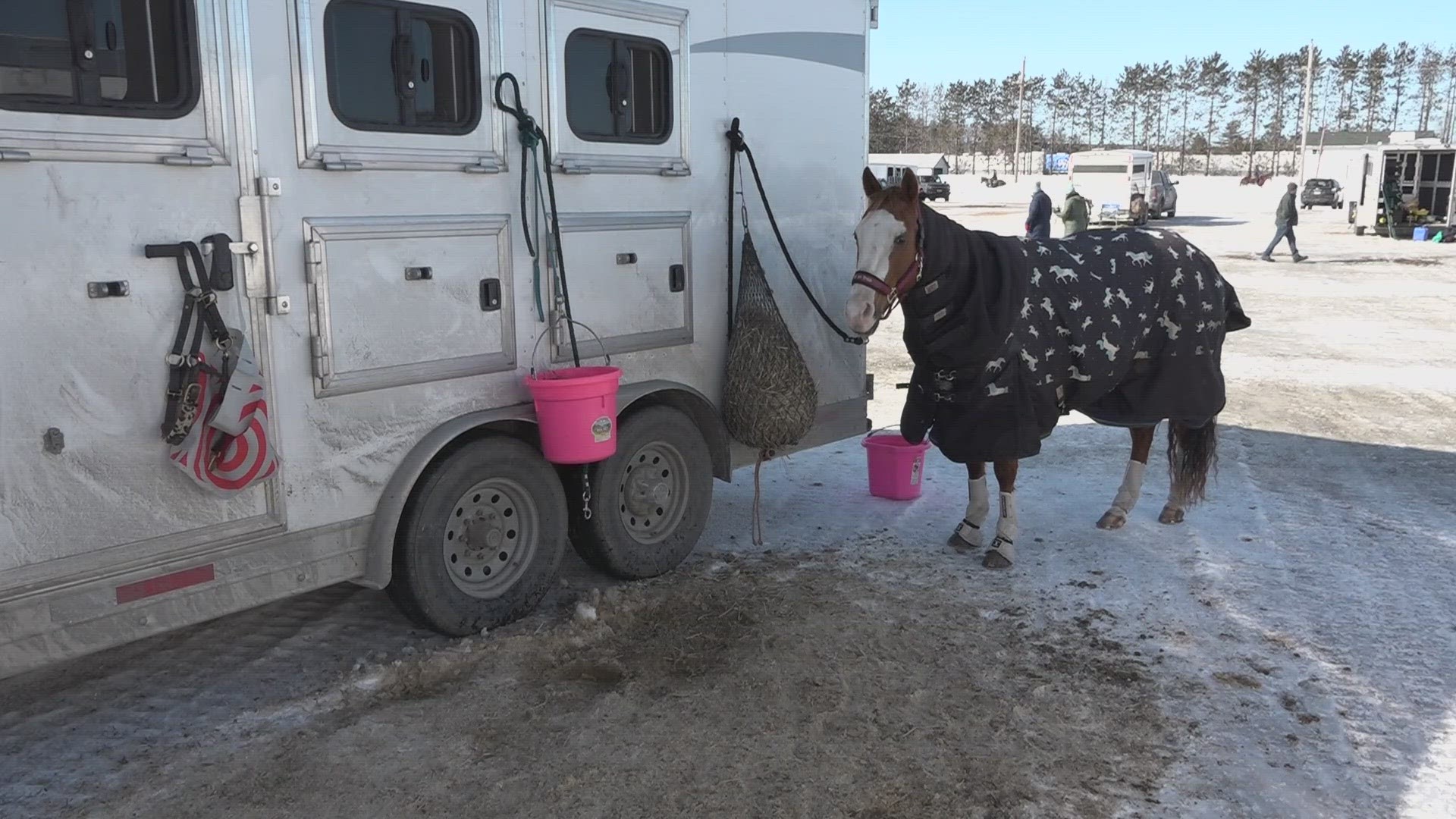SKOWHEGAN, Maine — Pro division skijor racers competed in the Skijor Skowhegan competition on Saturday at Skowhegan fairgrounds, closing off the final day of the sixth annual Somerset Snowfest.
Skier Matt Alexander of Turner and his teammate Linsey Farley won first place in the pro division races. Alexander also took second place with another rider and horse.
He said he has been skiing for more than 30 years, but this was his first year competing in Skijor Skowhegan. Alexander said adding in a horse and a horseback rider makes skijoring a different beast to tackle.
"It's fast paced," Alexander said. "You're kind of hanging on by the seat of your pants. It's definitely out of control. You're just making adjustments as you go and trying to look ahead."
Alexander and Farley finished Friday's race with a winning time of 23.63 seconds.
Other competitors like Andrew Legere said he too participated in the skijor races for the first time. Legere didn't find the sport to be easy by any mean.
"The turns were really tight, and the jumps were big," Legere said.
Legere said he missed the first ring the course because he was scared to let go of the reins with both hands. He ended the race with battle wounds after his team horse Hot Tequila Sunrise accidently kicked up a chunk of ice that instantly hit him in the lip.
"The ice chunk came off of the horses hoof really fast," Legere said. "I actually think it made me go faster."
Skijoring successfully requires a skilled skier, but Alexander said the horses and their instructors deserve the most credit.
"I show up, I click in, and I ski," Alexander said. "These people are working with these horses all year round."
Friend of the winning team Jordanne Day, who also rides horses, said horses like the winning horse Lynx, sometimes train two to six weeks before races.
"It's similar to humans," Day said. "I'm not going to go out and run a marathon if I haven't even gone for a walk in weeks."
While skiers struggle to hold on to the reins, Day said the biggest challenge for horses is staying warm.
"When they're exercising and get sweaty, they get wet, and their coats can't hold the heat as well," Day said.
Day said to combat temperature changes, riders and horse instructors use blankets to keep the horses warm, and remove the blankets when the horses warm up.
No matter the hurdle, Alexander said he and his team are ready for the skijor Bangor competition next weekend.
Skijor Bangor will be the third and final Northeast Equestrian Skijoring Regionals competition in New England. Alexander and his team won a $400 prize Friday, and they now move on to next weekend's races.

